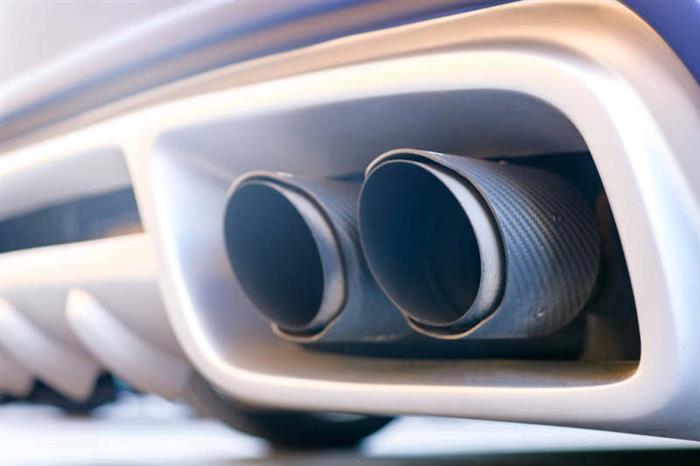Scan QRCode


Has attracted great concern of the automobile industry practitioners "double integral" policy ushered in a new round of updates, a few days ago, Ministry of Finance, the Ministry of Commerce, General Administration of Customs, state administration of market supervision and management of the announcement, said "about modifying the < average fuel consumption and new energy automobile passenger car enterprises management method integrating parallel > decision" has been examined and approved, will be effective as of January 1, 2021.
Blue car reporter discovery, the "double integral" the New Deal have done many adjustment, in addition to clear about the new energy vehicles in 2021-2023 percentage points, at the same time put forward the concept of fuel-efficient passenger vehicle and the favorable conditions of integral calculation, 2021-2023 annual production according to the number of 0.5 times, 0.3 times, 0.2 times, given increased year by year, this also means that from next year, fuel-efficient vehicles will become the darling of the automakers integral calculation.
According to the existing passenger vehicle fuel consumption data, it is not easy for the traditional gasoline single-action model to meet the standard value under the new double-point policy, and generally has a large distance with "low fuel consumption";Most of the existing MHEV light hybrids also need further technology upgrades to meet the fuel-efficient model designation. Most of them are heavy hybrid (HEV) products that can meet the fuel-efficient passenger vehicle requirements under the new rules, meaning that the Japanese group, represented by Toyota and Honda, is likely to be the biggest beneficiary of fuel-efficient passenger vehicles.
We will reduce the interference from new energy sources and guide real energy conservation and emission reduction
In September 2017, the ministry for the first time put forward the average fuel consumption and new energy automobile passenger car enterprises integrating parallel management method "(after referred to as" double integral), in addition to the annual average fuel consumption for passenger car enterprises (CAFC) put forward specific requirements, also provides the new energy vehicles and fuel car sales proportion, etc., according to the requirements of the existing policy, in 2020, the average new passenger car fuel consumption should be 5.0 L / 100 km.
Substantial progress has been made since the implementation of the two-point policy for more than two years. Statistics from the Ministry of Industry and Information Technology show that in 2019, 1.06 million new energy passenger vehicles were sold in China, ranking first in the world for five consecutive years, and the actual industrial average fuel consumption reached 5.5L/100km, down more than 10% from 2016.
However, although the existing management policies have basically achieved the expected goals, there is still a problem that the automobile enterprises do not invest enough in fuel-efficient technologies of vehicles.Car companies to reduce fuel consumption, in fact, in addition to improve the vehicle fuel consumption performance, can also do with production of new energy vehicles "and" implementation, in recent years, as the development of new energy vehicles, new energy vehicles is preferential multiple addition, eventually led to car companies of traditional fuel vehicle fuel consumption to improve the investment intention is not high, more and more choose to increase the output of new energy vehicles, fill the fuel car "pit", to achieve the purpose of compliance CAFC accounting values.
As time goes on, now, the fuel car compliance value and actual value deviation is bigger and bigger, according to the innovation center for energy and transportation released "2019 China passenger car double integral research report shows that since 2012, domestic passenger car companies CAFC accounting value of the average decline of 4.3%, but the CAFC accounting value and the difference in value between the traditional vehicle fuel consumption is also presented ascending trend year by year, in 2018, the difference has reached 12%, nearly five years of traditional car as dramatic as the actual average fuel consumption is only 2%.
The new policy, which will be implemented soon, will have a positive significance in guiding traditional passenger vehicle enterprises to increase investment in energy conservation technology research and development by introducing preferential accounting measures for low fuel consumption models when the score of new energy vehicles reaches the standard value.According to the Ministry of Industry and Information Technology (MIIT), considering that the requirements for fuel consumption standards are tightened year by year, the technical difficulties and costs of fuel-efficient models are gradually increasing, the accounting incentives for fuel-efficient models will be gradually increased from 0.5 times and 0.3 times to 0.2 times from 2021 to 2023.

HEV is favored and Japan is likely to be the biggest winner
Launch fuel-efficient passenger car business accounting preferential, open the car companies CAFC accounting mode, if able to its products sell like hot cakes as fuel-efficient passenger vehicle standard products, even calculated according to the 0.5 times in 2021, enterprises should be corresponding to the production of new energy vehicles more than half of the quantity also reduced accordingly, if calculated at 0.2 times were 5 times.
But the cruel fact is that most car companies do not have models that meet the standard of fuel-efficient passenger vehicles, and if they do, most of them are not very popular models. It is a great challenge to build a product that meets the policy requirements in a short time.
One is the high technical difficulty.The personage inside course of study tells a reporter, is confined to the internal combustion engine technology development bottleneck, the existing technical background, the traditional single action of gasoline fuel vehicles has been difficult to achieve real CAFC limit, at present, even if the internal combustion engine miniaturization, use the turbo, increase the start-stop technology, most also can meet the requirements of the basic policy, it is difficult to further satisfy the standard of fuel-efficient passenger vehicle.
However, in recent years, more 48V weak hybrid (MHEV) technology has been used. Due to the limited energy saving effect, although it has the technical basis to meet the requirements of low-fuel consumption passenger vehicles, it tests the technical strength of vehicle enterprises comparatively.Overall, only a deep petrol-electric hybrid (HEV) is a relatively easy technology to meet fuel-efficient passenger vehicle standards.
"The deep hybrid models represented by Toyota and Honda have the most extreme engine efficiency squeeze and higher electrification, and most of them can meet the standard of low-fuel consumption passenger vehicles. However, due to the high technical requirements, it is difficult for other car companies to replicate in a short time."The personage inside course of study says.
In addition to the technical difficulties, on the other hand, the fuel vehicle fuel consumption test standard is about to be rotated, which also makes the car companies need to spend more energy to build fuel-efficient models.In 2021, WLTP will replace the existing NEDC to become the new standard of working condition test. Under WLTP standard, due to more complex testing conditions, compared with the NEDC standard now in force, it is closer to the actual performance of fuel consumption, and the fuel consumption value will also be increased.
"Currently, the fuel consumption performance of models in the market is the optimal solution found by the auto companies under the existing NEDC test standard. Switching WLTP means that the fuel consumption performance will increase.""Fuel consumption deteriorates at different levels for different technology routes, and HEvs deteriorate at a greater level, but even so they are still at a lower level than turbocharged and microblend technologies," an industry source said.
"For now, Toyota, Honda, Hyundai and other HEvs in Japan and South Korea will benefit from favorable accounting policies for fuel-efficient passenger vehicles, while Geely, through Corun, will also be able to use HEV technology to launch some mass-market products.For vehicle enterprises with weak technical strength, it is another way to upgrade plug-in hybrid technology, or make a comprehensive transformation to pure electric vehicles, and bypass the CAFC limit."The personage inside course of study says.
AMS2024 Exhibition Guide | Comprehensive Exhibition Guide, Don't Miss the Exciting Events Online and Offline
Notice on Holding the Rui'an Promotion Conference for the 2025 China (Rui'an) International Automobile and Motorcycle Parts Exhibition
On September 5th, we invite you to join us at the Wenzhou Auto Parts Exhibition on a journey to trace the origin of the Auto Parts City, as per the invitation from the purchaser!
Hot Booking | AAPEX 2024- Professional Exhibition Channel for Entering the North American Auto Parts Market
The wind is just right, Qianchuan Hui! Looking forward to working with you at the 2024 Wenzhou Auto Parts Exhibition and composing a new chapter!
Live up to Shaohua | Wenzhou Auto Parts Exhibition, these wonderful moments are worth remembering!
Free support line!
Email Support!
Working Days/Hours!





